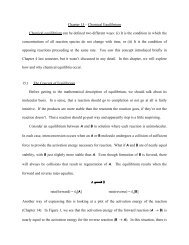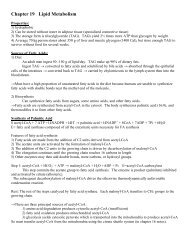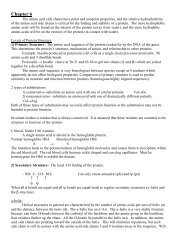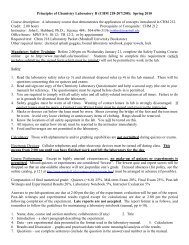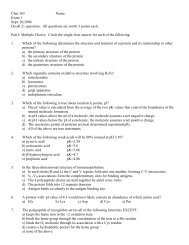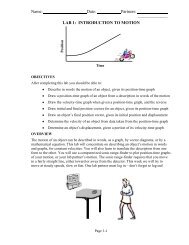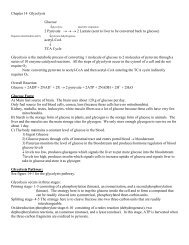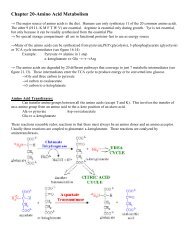THE DHAMMAPADA: THE WAY OF THE BUDDHA, VOL. 9-12 The ...
THE DHAMMAPADA: THE WAY OF THE BUDDHA, VOL. 9-12 The ...
THE DHAMMAPADA: THE WAY OF THE BUDDHA, VOL. 9-12 The ...
Create successful ePaper yourself
Turn your PDF publications into a flip-book with our unique Google optimized e-Paper software.
354 <strong>THE</strong> <strong>DHAMMAPADA</strong>: <strong>THE</strong> <strong>WAY</strong> <strong>OF</strong> <strong>THE</strong> <strong>BUDDHA</strong>, <strong>VOL</strong>. 9-<strong>12</strong><br />
they really are is hidden behind. And there is a constant conflict between these two, they live two kinds of lives.<br />
Avoid this.<br />
I know this desire arises. This desire seems to be very prevalent.<br />
Jesus and Moses were playing golf. When they came to a two-hundred-yard water hazard. Jesus took out a five<br />
iron club. Moses warned him that two hundred yards were too far for a five-iron, but Jesus insisted, ”If Arnold<br />
Palmer can make it with a five-iron, so can I!”<br />
He hit the ball and it landed in the middle of the lake.<br />
”Will you get the ball for me, Moses?” asked Jesus.<br />
”Just this once,” he replied, walked over, raised his club, and parted the water. <strong>The</strong>n he walked out and brought<br />
the ball back to Jesus.<br />
Again Jesus took a five-iron and again Moses warned, ”If you don’t make it, I’m not going to get it for you!”<br />
Jesus reassured him, ”If Arnold Palmer can do it, surely I can do it!”<br />
Again he swung the five-iron and again the ball fell in the water. This time Jesus walked out on the water,<br />
reached down, and was picking up the ball when the next foursome came up to the tee where Moses was standing.<br />
<strong>The</strong> leader of the group asked Moses, ”Who does he think he is, Jesus Christ?”<br />
”No,” replied Moses, ”he thinks he is Arnold Palmer!”<br />
Govind, you just be Govind the Buddha. <strong>The</strong>re is no need for you to be Gautama the Buddha. Gautama was<br />
beautiful, but once it is beautiful twice it is too much. And what is the point? What will your contribution<br />
to existence be if you are Gautama the Buddha? No contribution. Gautama has done it, he has done what a<br />
Gautama can do. You cannot improve upon it.<br />
You do something that you can do and no Gautama can ever do. God has great hopes for you: he hopes you<br />
will contribute something to existence. He never loses hope, that’s why he goes on creating people. Although<br />
people go on deceiving, people go on misusing the opportunity, people go on wasting time, but still God goes on<br />
hoping. With each child a new hope is born in the world. You have to contribute something that only you can<br />
do and nobody else can do, hence you have to do it. Forget this whole idea of being Gautama the Buddha just<br />
be yourself.<br />
And that’s exactly what Buddha has taught, that’s exactly his essential message. His last words to his disciples<br />
were: Appa deepo bhava be a light unto yourself.<br />
When he was dying, naturally thousands of disciples had gathered and they started crying and weeping. <strong>The</strong><br />
master was leaving, it was natural, and the master had lived with them for forty-two years and they had loved the<br />
man, they had loved his vibe. He was one of the most beautiful men who has ever walked on the earth. Not only<br />
was he spiritually beautiful, physically he was also one of the most beautiful men. About Jesus that cannot be<br />
said. He was spiritually beautiful, but the ancient scriptures say that physically he was not beautiful. He was only<br />
four feet five inches and, moreover, a hunchback. Buddha was one of the most beautiful expressions physically<br />
too, really a lotus flower. And they had all loved him. <strong>The</strong>y had renounced everything and risked everything for<br />
this man and now he was leaving. <strong>The</strong>y started crying. One can understand their crying and their weeping and<br />
their tears.<br />
But Buddha said, ”Stop! Stop all this nonsense! Why are you crying? What difference is it going to make? I<br />
was not your light, you have to be your own light. And,” Buddha said to them, ”it may be a blessing in the form<br />
of a curse, because when I am gone you will try to find yourselves. While I was here you were more interested in<br />
me; although I was insisting: Go in! you were focused on me. Now I will not be here, you are bound to go inside.”<br />
And that’s exactly what happened: many people became enlightened after Buddha died. When they were<br />
asked, ”Why did so many people become enlightened when Buddha died?” they all said, ”Now we understand<br />
what he meant, that in the form of a curse it is a blessing because once you have seen a buddha and he is gone<br />
there is nothing worth seeing outside. So we closed our eyes.<br />
”We have seen all that was the most worth seeing: we have seen the most beautiful person. What else is there?<br />
<strong>The</strong>re is nothing worth hearing, worth seeing. We closed our eyes, we turned inwards and because Buddha was<br />
not there anymore we heard his words for the first time. When he was here we were able to postpone, tomorrow<br />
or the day after tomorrow. We were so much enchanted by his personality, by his charisma. Once he was gone<br />
we had to fall back upon our own selves. Maybe that was his last device.”<br />
Govind, be Govind the Buddha!<br />
<strong>The</strong> third question:<br />
Question 3<br />
BELOVED MASTER, ARE <strong>THE</strong>RE GREAT DIFFERENCES BETWEEN <strong>THE</strong> DIFFERENT RACES <strong>OF</strong><br />
MANKIND?



